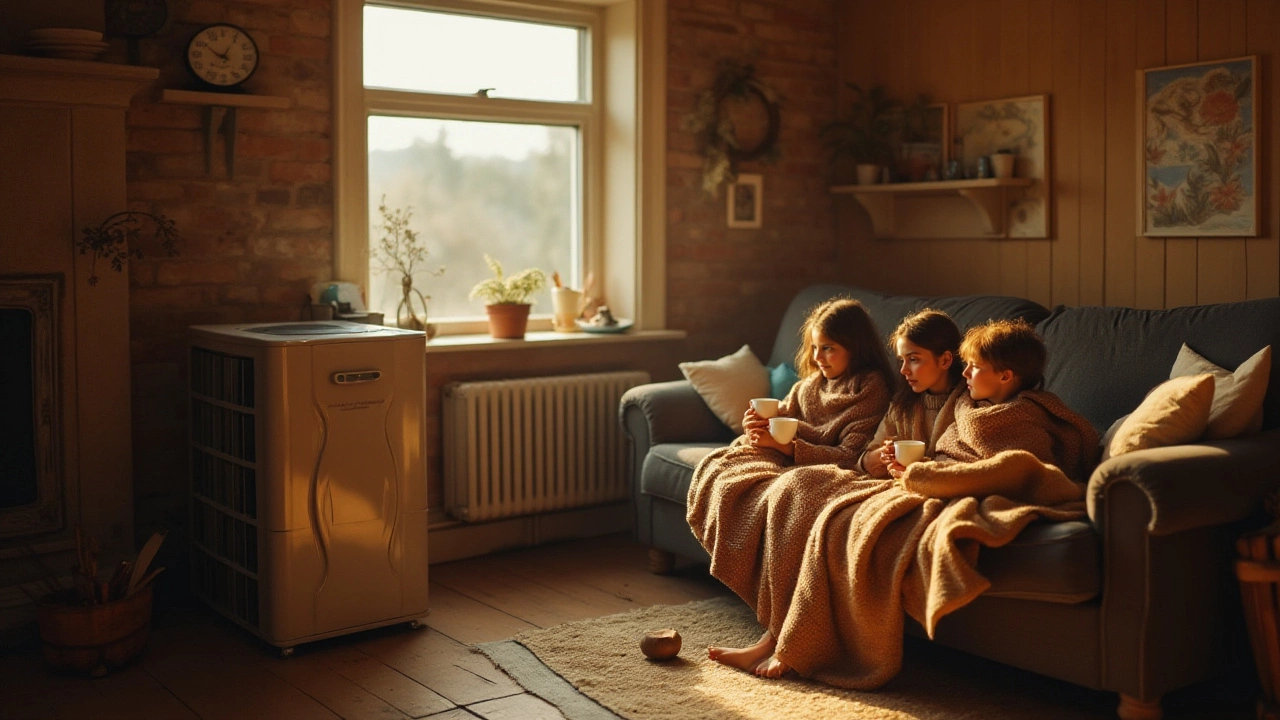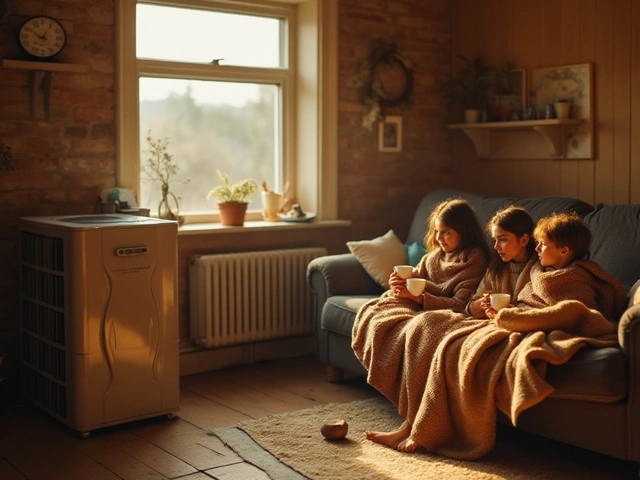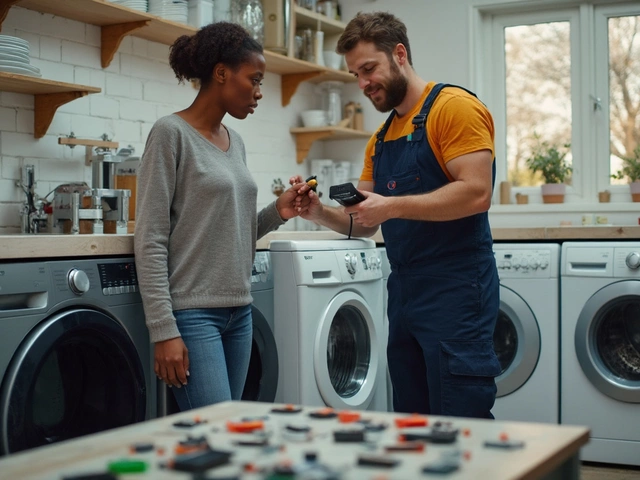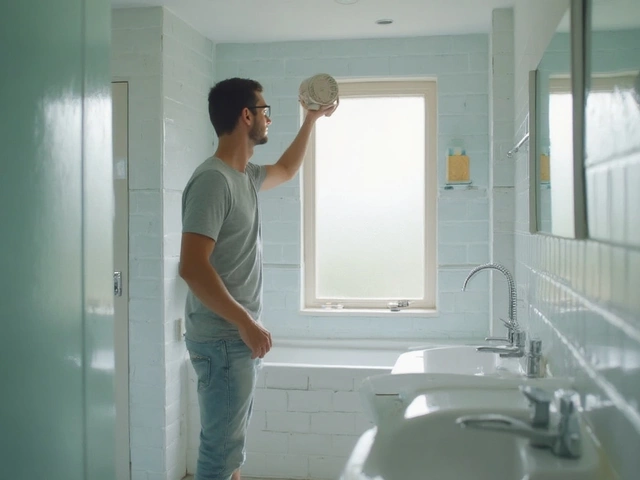Imagine coming home to an ideal temperature, where the air is warm and inviting during winter, and refreshingly cool in summer. A well-functioning heat pump is an unsung hero, tirelessly working behind the scenes to maintain that blissful balance. But what happens when your trusted companion starts showing signs of wear and tear?
Whether it's a noticeable climb in your energy bills or a persistent hum that's turning into a clatter, recognizing when your heat pump may need replacing is crucial. With technologies evolving at a brisk pace, knowing when to upgrade can mean increased efficiency and savings down the line. Let's delve into some telltale signs which might indicate that it's time to consider letting go of your old faithful and ushering in a sleek, new model.
- Understanding the Role of Heat Pumps
- Signs of Inefficiency and High Energy Bills
- Inconsistent Temperatures and Comfort Levels
- Unusual Noises and Their Implications
- Age of the Unit and Technological Advancements
- Cost-Benefit Analysis: Repair or Replace?
Understanding the Role of Heat Pumps
Heat pumps play a pivotal role in maintaining comfortable living environments by efficiently managing indoor temperatures all year round. Unlike traditional systems that rely on burning fuel, a heat pump uses electricity to transfer heat from one area to another—be it from the outside air, ground, or water sources. This mechanism of operation makes them an energy-efficient choice for homeowners seeking to reduce their carbon footprint. Given their environmental benefits, they’ve become an increasingly popular choice, with sales in Europe alone rising significantly in recent years.
Every heat pump consists of two main components: the evaporator and the condenser. In the cooling season, the evaporator absorbs heat from indoors, and the condenser releases it outside, acting as an air conditioner. Conversely, during colder months, the process reverses—this versatility is why heat pumps are favored in regions with moderate climates. When properly maintained, these systems can last anywhere between 15 to 20 years, making them a sound long-term investment. "Heat pumps offer a cleaner and more sustainable alternative to conventional heating systems," highlights an article from the International Energy Agency. They're not only about temperature regulation; they're about efficiency and sustainability.
In terms of savings, the financial advantage is significant. Homeowners often witness a noticeable dip in their utility bills, sometimes as much as 50%, according to various environmental studies. This is because heat pumps use less energy compared to other HVAC systems. However, location and climate can impact efficiency—warm-climate residents see the best results, but modern technology has improved systems even for cooler regions. Consider the example of advanced geothermal pumps, which tap into the earth's constant underground temperature, to deliver heating or cooling regardless of external weather conditions. It's this adaptability that makes them increasingly appealing.
The environmental benefits of heat pumps are well-documented. By changing how energy is captured and converted, they emit substantially fewer greenhouse gases than traditional heating methods. That makes them an ally in the fight against climate change. Their significance is emphasized by the growing number of government incentives aimed at encouraging their adoption. Though the upfront cost can be hefty, financing options and subsidies often ease the initial burden. For those considering a leap to a more sustainable future, exploring warranty options, and looking for systems with high SEER and HSPF ratings is advisable. This helps ensure both performance and peace of mind.
Signs of Inefficiency and High Energy Bills
Looking at the evolution of your home's comfort isn't just about temperature; it's about efficiency too. One of the first indicators that your heat pump might be underperforming is a noticeable spike in energy bills. While it's true that energy prices can fluctuate, if you're suddenly shelling out more without any obvious explanation, it could be a sign that your heat pump is not as efficient as it once was. A system struggling to maintain the desired temperature usually consumes more electricity, turning your energy costs into a roller-coaster ride of surprise expenses.
Consider your system's age. Many homeowners find themselves in predicaments because their heat pumps are reaching the end of their typical lifespan of around 10 to 15 years. As components wear down, inefficiency elevates, often requiring more frequent and costly repairs. Older systems also might not match up to the energy-efficient standards seen in newer models. According to the U.S. Department of Energy, newer models can reduce electricity use by as much as 50% compared to more traditional ones.
"One of the most significant aspects of routine maintenance is checking operational efficiency and making sure everything runs smoothly, which lessens the chance of unexpected repairs," emphasizes Sarah Woodward, a notable HVAC expert.
Perhaps you might have noticed your heat pump cycling too often or possibly running continuously. This behavior often points to an inefficient system attempting to maintain balance. Such persistent operation not only racks up the energy expenditure but puts undue strain on other components, leading to premature failures. Making sure the system is appropriately sized for your home and well-maintained can ward off these issues to some extent, but may not fully counteract the effects of time and constant use.
- Evaluate the frequency and duration of your heat pump’s cycles.
- Check seasonal energy consumption patterns for anomalies.
- Consider routine examination of insulation and duct for leaks.
Another subtle clue could be the level of comfort in your living spaces. If the pump's working harder yet rooms feel unevenly heated or cooled, it's likely struggling and driving up energy costs at the same time. Whether it is frost creeping onto your coils or noticeably weaker airflow, these signs should prompt a review from a professional HVAC technician. Efficiency isn't just about keeping costs low but about maintaining a harmony in the climate of your home.
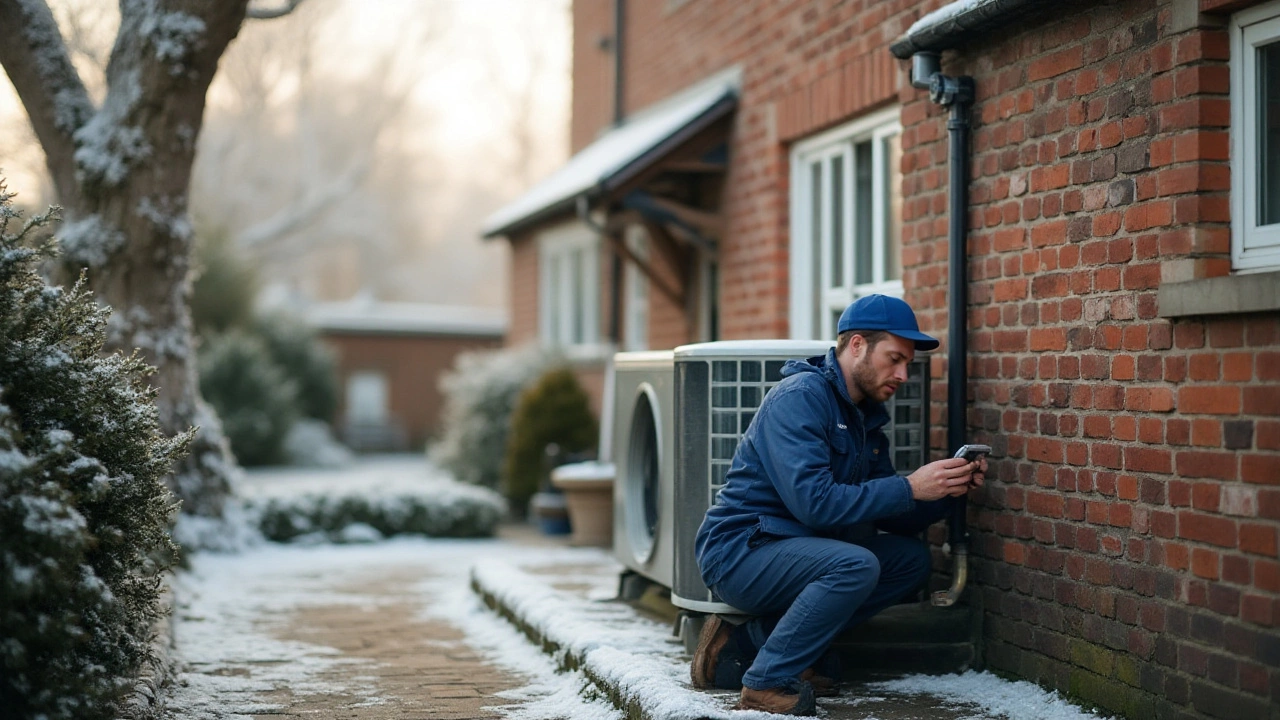
Inconsistent Temperatures and Comfort Levels
One of the most obvious signs that your heat pump might be on its last leg is when you start to notice varying temperatures in different rooms or at different times of the day. Ideally, a well-maintained heat pump should provide consistent warmth or coolness that keeps your entire home cozy. But when it starts failing, you might find some rooms are much colder or warmer than others. This is not just a minor inconvenience; it could indicate a significant issue with your unit. For instance, uneven temperature distribution could mean your heat pump’s compressor is struggling to circulate the refrigerant effectively, or there might be a leak within the ductwork causing energy loss.
It could also be a sign that your heat pump’s motor is beyond its best years, unable to handle the demands of your household any longer. This can happen as built-up dirt, dust, and wiring issues take their toll over time, making the motor work harder than it should. Repair efforts might provide a short-term fix but persistently dealing with these inconsistencies is often a signal to start looking into replacement options.
Modern heat pumps are designed to offer greater efficiency and dependability, partly due to advances in HVAC technology. A newer model might be precisely what you need if you're experiencing these irregularities because innovations consider both energy savings and maximum comfort. According to Energy Star, switching to an updated heat pump can save households up to 20% on annual energy bills, a testament to the efficiency leaps achieved in recent years. Recognizing this can transform the way you think about the investment.
In times when the warmth of your sanctuary is put at risk, it pays to address these variations quickly. Always consider getting a professional diagnosis to assess whether these fluctuations are repairable or if replacing the system might be more financially prudent in the long run. Such guidance can help you weigh the costs and benefits more clearly. If a replacement is deemed necessary, it is also wise to consider units with zoning capabilities, which can solve the problem of inconsistent heating and cooling for good.
Investing in a new heat pump can seem like a daunting and costly endeavor, but remember that it can lead to substantial savings and long-term benefits, not to mention regain the all-important climate harmony in your home. Ultimately, consistent interior comfort is something you don't want to compromise, so paying attention to what your heat pump is telling you is the first step to ensuring your spaces remain as inviting as ever.
Unusual Noises and Their Implications
Picture this: you're sitting on your couch, relaxing after a long day, and suddenly your trusty heat pump lets out a screech that disrupts the calm ambiance. It's like your heat pump is trying to communicate something crucial. Strange noises from your unit are usually an alarm bell indicating that something isn't quite right. A persistent rattling, for instance, could be a sign of loose parts inside the system, like a screw or bolt that needs tightening. Addressing these issues early can prevent more significant problems down the line.
Another common sound is a grinding noise, which might suggest that there is an issue with the motor or a problem within the compressor. It's not uncommon for these components to experience wear and tear, especially if your system is on the older side. Old age can cause lubrication levels to drop, causing increased friction and consuming more energy, inevitably leading to repairs. Experts suggest that diagnosing and addressing these sounds promptly can extend the lifespan of your HVAC system. As heating and cooling systems advance, being mindful of these changes can also provide an opportunity to explore more technologically advanced options.
Every so often, you'll hear a whooshing or hissing sound, which might make you think of escaping air or refrigerant leakage. This is critical as refrigerant leaks not only diminish performance but can also pose health risks. Efficient cooling systems are at the heart of modern home comfort, and insufficient coolant levels undermine this. According to the Energy Saving Trust, ensuring that your heat pump is in good repair can save up to 10% on heating bills annually. They advise regular checks and maintenance as a best practice, particularly for those systems under hard usage or significant environmental exposure.
The most attention-grabbing noise might be the metallic bang or clank that heralds severe mechanical issues. This could indicate the compressor is straining, either beginning to fail or experiencing excessive pressure; both scenarios can lead to costly repairs. Taking immediate action when these noises arise could prevent the situation from escalating, saving both time and frustration. Consider enlisting the expertise of a certified technician to conduct a thorough inspection. "It's always better to prevent than to cure," says a report from the Building Services Research and Information Association.
Finally, let's not forget the hums and whistles coming from the ductwork. This could either be a need for readjustment or an indication of something more technical, like blockages or airflow restrictions. These cause your system to work harder, often raising your energy bills and leading to premature wear on your unit. Identifying these duct-related issues early ensures a well-performing system that provides the desired comfort levels without the headache or the hit to your pocket. When our heating units communicate with noise, attentiveness is key in diagnosing the underlying issues and maintaining a peacefully efficient home.
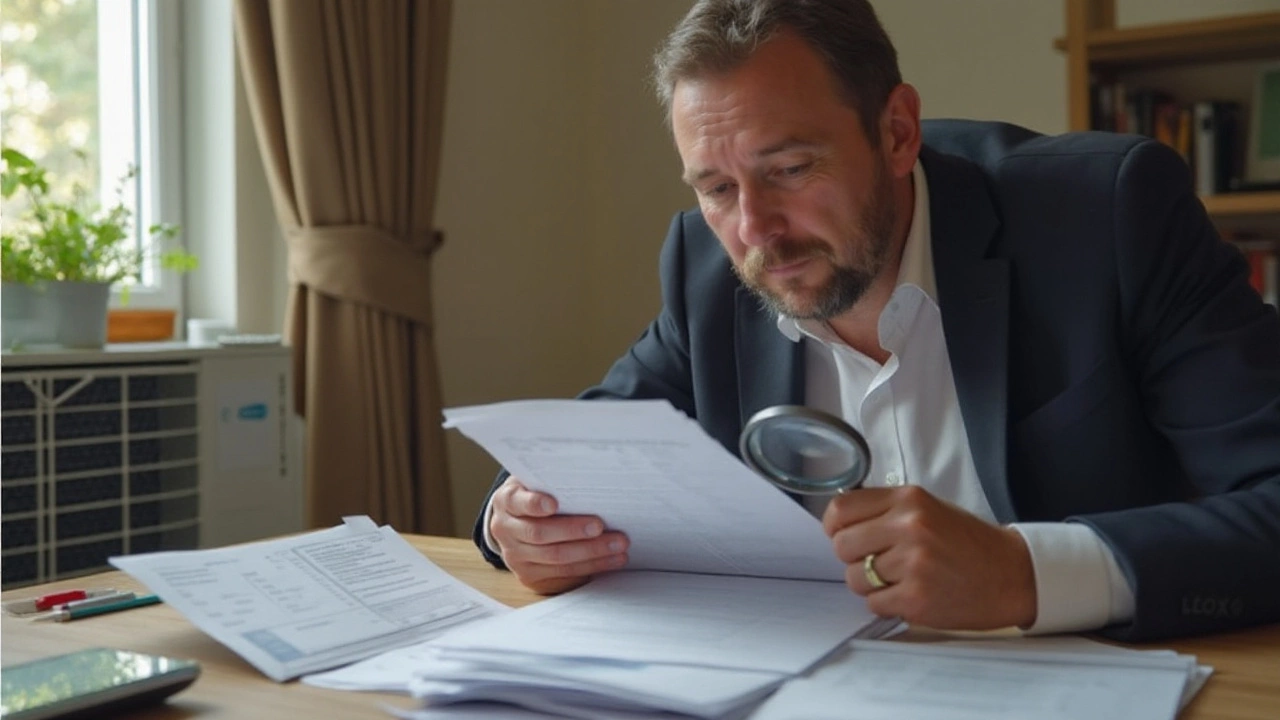
Age of the Unit and Technological Advancements
Your trusty heat pump has been a faithful servant over the years, ensuring comfort through sweltering summers and brisk winters. But as with all things, there comes a time when even the most reliable systems must be considered for an upgrade. Most heat pumps have a lifespan of about 10 to 15 years. As they approach this age, not only do they become less efficient, but they also miss out on significant advancements in technology that have emerged over the last decade or so.
Technological improvements in HVAC systems have been nothing short of extraordinary. Over recent years, manufacturers have focused on boosting energy efficiency, enhancing control features, and minimizing environmental impact. These advances mean that newer models often operate on a fraction of the electricity consumed by older units, potentially saving homeowners a tidy sum on energy bills. Additionally, modern heat pumps can offer improved climate control features that allow users to fine-tune their home's environment in ways older models simply cannot compete with.
Heat pumps today come equipped with smart technology options. This means integrating with home automation systems for seamless control using smartphones or voice assistants. Older systems do not offer this level of integration, which can be a growing inconvenience. Beyond convenience, such advancements also mean better diagnostic capabilities. Built-in sensors and diagnostic software can alert homeowners and technicians to a problem before it spirals into costly repairs.
Susan McLaughlin, a leading expert in sustainable heating solutions, suggests, "Investing in a new heat pump with advanced technology is not just about immediate energy savings. It's about future-proofing your home's comfort needs in an era that's increasingly embracing digital control."
Moreover, the shift towards eco-friendly technologies addresses growing environmental concerns. New systems are often designed with non-ozone-depleting refrigerants, which are kinder to the planet. Many utility companies offer incentives or rebates for upgrading to more environmentally friendly systems, which can mitigate the upfront costs of purchasing a new unit.
As you weigh the decision of whether to repair or replace, consider not just the current functionality of your heat pump, but the technological landscape that now exists. The benefits of investing in a new system can extend beyond savings on your monthly utility bill -- they can offer peace of mind and confidence that your home is at the forefront of comfort technology.
Cost-Benefit Analysis: Repair or Replace?
Deciding whether to repair or replace a heat pump can feel a bit like being stuck at a crossroads on a quiet country road. You want to make the right choice, the one that leads to financial savings and comfort, without falling into a rabbit hole of mounting costs and endless repairs. Let's take a closer look at what should be considered in this decision-making process.
First, consider the age of your heat pump. Most heat pumps have a useful life of 10 to 15 years. If yours is approaching or exceeding this age, any repairs done might only serve as temporary fixes. An older system is likely to continue encountering issues, and each repair can add up to a significant amount over time. On the other hand, if your heat pump is relatively new and just acting out, a repair might just be the thing it needs to get back to peak performance.
Now, think about the frequency and cost of repairs. If you're calling in the repair service crew more times than you'd like to recall, that's a red flag signaling potential replacement. The rule of thumb is if repairs are costing more than 50% of the price of a new heat pump, it’s wise to invest in a replacement. Newer models are more energy-efficient, saving you money on energy bills in the long run, which can offset the cost over time.
Consider the benefits of technological advancements as well. Modern heat pumps have made leaps in terms of efficiency, performance, and environmental friendliness. Switching to a newer model offers an opportunity to reduce your carbon footprint and make your home smarter. According to the Department of Energy, new technology can make heat pumps up to 50% more efficient than those produced a decade ago.
Energy savings are one of the main drivers for homeowners upgrading their systems to new models, says John Doe, Senior Analyst at Energy Savers UK.
Sometimes, incentives and rebates can tilt the scale towards buying a new unit. Government schemes and manufacturers frequently offer rebates for upgrading to energy-efficient systems. This can significantly reduce the upfront cost, making replacement surprisingly affordable. It's recommended to check with local energy companies to see if such offers are available in your area.
Finally, do a simple cost analysis. Calculate likely future repair costs, energy savings from an upgraded system, and any potential rebates you might receive. It can be particularly helpful to sketch out a table or a spreadsheet to list down these factors. This financial brainstorming provides a clearer picture of whether repairing the current unit is more economical or if replacing it is a smarter decision.

